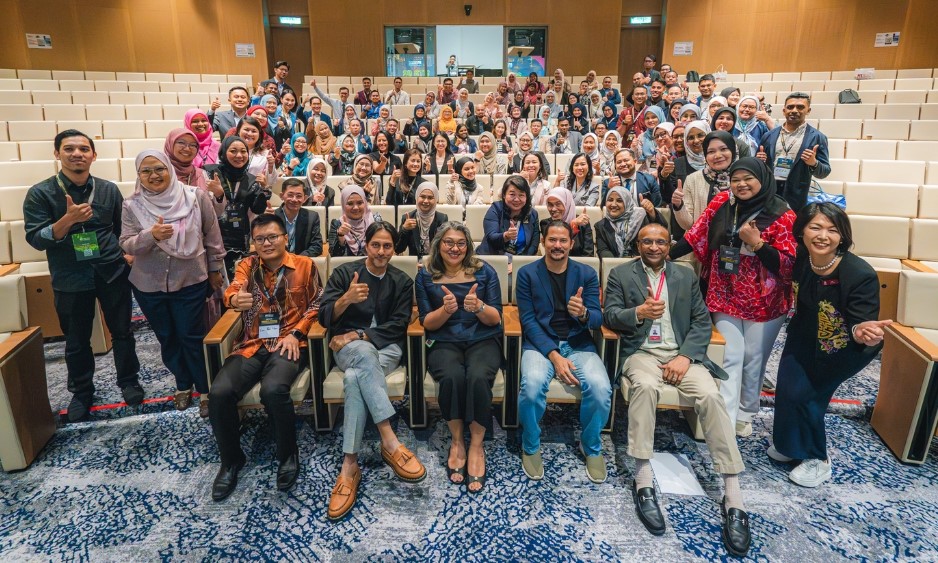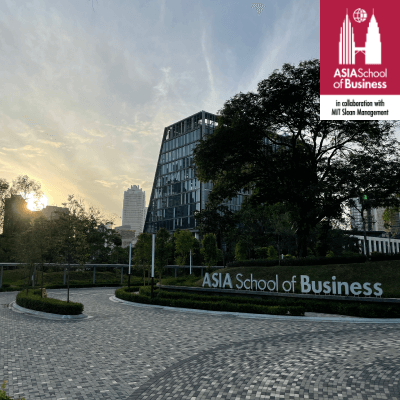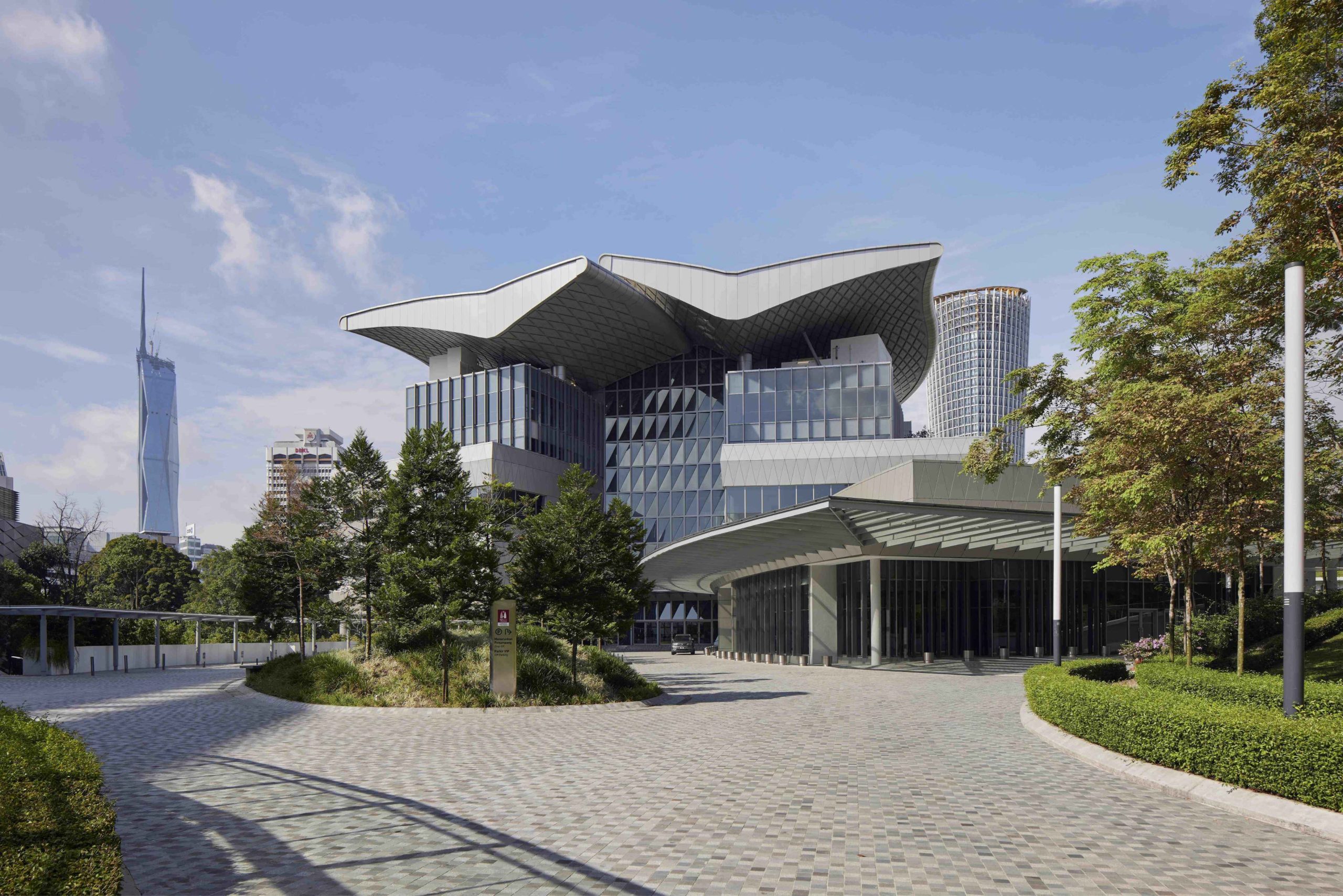- About

Established in 2015 in collaboration with MIT Sloan Management, our vision is to be a global knowledge hub, with regional insights from Asia and the emerging world.
- Faculty & Research

ASB’s research centers conduct impactful research in emerging markets, business strategies, technology, and sustainability. Together, they foster innovation in the business landscape.
- Academics

The ASB curriculum seamlessly integrates MIT Sloan’s rigor with the strategic insights of Asia. With MIT Sloan Immersion and Industry Treks, it immerses future leaders in a diverse range of industries.
- ACE

ASB has launched Agile Continuous Education (ACE), a granular set of hybrid courses that are designed to keep professionals at the forefront of their fields.
- Executive Education


ASB provides executive education programs covering corporate governance, general management, and finance, including the mandatory Financial Institutions Directors’ Education (FIDE) programs.
- Corporate

ASB excels through dynamic collaborations, addressing business challenges with innovation, built on robust partnerships.
Climate Risk Management: What Insurance Company Directors Need to Know

Climate Risk Management: What Insurance Company Directors Need to Know


July 9, 2025
Date
9:00 AM – 5:00 PM
Time
RM 3,000*
Program Fee
In-Person
Format
Overview
The adverse impact of climate change could pose material financial risks to impact the safety and soundness of financial institutions, including insurers, with broader implications on the stability of the financial system including their clients and hence, could affect the sustainability of domestic economic growth.
In view of the risks that climate change poses for financial stability in the long run, Bank Negara Malaysia (BNM) expects financial institutions including insurance companies to respond urgently, through taking early actions to implement changes towards building climate resilience and strategically, by accounting for how actions today affect future outcomes under a range of scenarios and time horizons over the long term comprehensively, when strengthening their risk management frameworks to address these financial risks from climate change. In particular, financial institutions are to manage these risks by recognizing the distinctive elements of climate-related risks: far-reaching in breadth and magnitude, foreseeable but highly complex due to uncertainty, nonlinearity, irreversibility and dependency on short-term actions; and holistically, through greater collaboration across a wider spectrum of stakeholders when managing the systemic impact of climate-related risks.
To address these ecosystemic and holistic implications, this program hopes to provide directors of insurance companies with a better understanding of the complex and inter-connected issues related to climate change and how implementation and adoption of BNM’s Climate Change Principles-based Taxonomy (CCPT), Climate Risk Management and Scenario Analysis (CRMSA) guidelines including stress testing (CRST) could help enhance the resilience of the financial sector against climate-related risks while the knowledge gained will help directors provide better strategic and tactical oversight of the management of climate risks for their organizations.

- Explain the concept of climate-related financial risks and their impact on the financial system including on their clients;
- Apply the CCPT to classify economic activities and identify potential climate-related exposures;
- Conduct climate-related scenario analysis including stress tests to assess the financial implications of different climate scenarios as embodied in the CRMSA and CRST requirements and guidance;
- Develop strategies to mitigate and manage climate-related risks;
- Contribute to the development of a sustainable and resilient financial system.
- Boards of Directors of insurance companies
- Risk Management Committee Members of insurance company boards
- Chairmen of insurance company boards
- Senior Management of insurance companies
- Anyone who might ¬find this program helpful.

Khoo Guan Seng
Faculty Profile
Dr. Khoo Guan Seng has over 28 years of experience in the design and implementation of enterprise-wide investment, banking and risk management models, systems and processes, including ESG/responsible investing. He gained deep practical insights from a career with financial institutions in the US, Canada, UK and Singapore, including the Man Group, where he was the Principal Scientist, designing and running an algorithmic AI-based hedge fund; and American Bourses Corporation, which provided robo-based analytical solutions and financial info-utilities to traders and investors.
He has also served at ATOS Origin, RHB Capital, Singapore Exchange, Standard Chartered Bank, Temasek Holdings, Alberta Investment Management Corporation (AIMCo), Changi Airports International, and the Alliance to End Plastic Waste (AEPW). He holds a PhD in Computational Physics (Material Science) from the National University of Singapore, with post-doctorate R&D in AI-based data mining and applications in Japan and the US.
When he was the Head of ERM/GRC at AIMCo, he was also the Head of Proxy Voting and a member of the investment committee involved in approving investments via relationship investing/stakeholder engagement, e.g., in Environmental Resources Management and Glass Lewis. He also helped establish AIMCo’s Responsible Investing Unit in 2011.
Over the last few years, he has led initiatives in sustainability-related project and impact financing and education, including at AEPW, and in sustainable investing seminars for the investment management and banking industries, at SMU, Salmon Thrust and London Business School’s SWF Academy.
As an academic at Nanyang Technological University, he co-designed the first environmental science module (as a free elective for all NTU undergrads) in 1997, which included teaching on the effects of climate change on human society and biodiversity. He published A Guide to the Flora and Fauna of Schools in Singapore in 1991 and also participated in a Malaysian Nature Society scientific expedition to the Endau-Rompin forest reserve in Malaysia in 1989 to investigate and research the changing state of biodiversity due to climate change and human interactions.
Connect with us to start
Climate Risk Management: What Insurance Company Directors Need to Know
RM 3,000*
Fee excludes accommodation at ASB Residential for outstation/ overseas participants but can be arranged at additional cost.

RM3,000.00
Program Fee